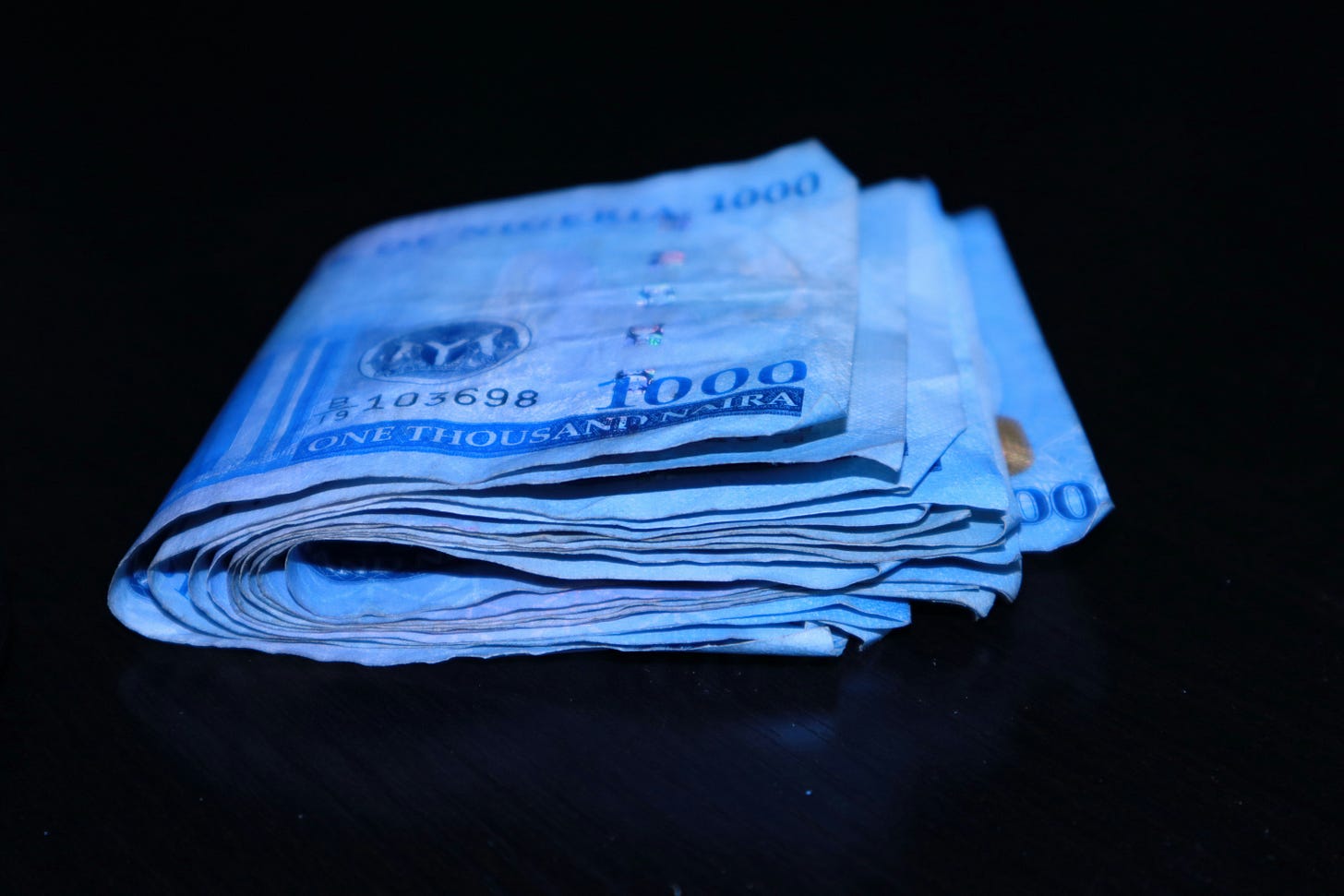Two fascinating items
Big numbers without context are seductive
If this email was forwarded to you, subscribe for free:
TOGETHER WITH CREDIT DIRECT
Your money should never slow you down. With the Credit Direct App, every transfer, payment, and investment happens instantly while your growth stays steady.
2 Fascinating News Stories
#1 -Does ₦10bn really prove customer frustration?
What happened
Between March and August 2025, the Federal Competition and Consumer Protection Commission (FCCPC) says Nigerians got some ₦10 billion back across 9,091 resolved complaints. The Banking sector led with 3,173 cases, followed by FMCG, fintech, and electricity.
What it means
Big numbers like ₦10bn are seductive in a headline. And when you pair it with the FCCPC saying it “tells the story of consumer frustration,” while asking for “tighter joint enforcement,” it’s even more interesting. But a single number, without context, can mean almost anything.
Let’s start with scale. Nigeria processed about ₦285 trillion in e-payments in Q1 2025. Double that to get a rough six-month base, and you’re near ₦570 trillion.
Against that figure, ₦10bn is roughly 0.002%. It’s important to the people who got their money back but it is hardly evidence of a country-wide meltdown. The average refund, about ₦1.1m per resolved case, shows the mix skews to big, complex disputes that survive internal helpdesks and escalate, not the everyday annoyances most people tolerate or resolve with their bank.
If complaints are a proxy for sentiment, complaints per million people is probably the more accurate measure. According to the FCCPC figures for banks and fintech, we’re seeing around 40 complaints per million Nigerians (assuming a population size of 203 million).
If you add the CBN’s 19,998 complaints over an eight-month window, you land around ~48,000 complaints a year, or ~165 per million.
If we use arbitrary benchmarks, the U.S. Consumer Financial Protection Bureau (CFPB) saw ~3.19 million complaints in 2024 (~9,500 per million Americans). South Africa’s banking ombud opened ~15,412 (~250 per million South Africans).
By that yardstick, the Nigerian doesn’t scream widescale customer fury. If anything, we might have some underreporting. Low counts can reflect resolution happening upstream, low awareness of escalation routes, the effort it takes to file, or all three.
What could be useful:
Publish a single complaints dashboard that merges FCCPC, CBN and sector regulators (NERC for power, NCC for telecoms), with duplicate cases removed.
Show the median refund and the median time-to-refund (averages are distorted by a few very large cases), plus, for each sector, what share of complaints end in a fix/refund and how long it took. Link this to payments dispute rails so we can estimate what share of failed/contested transactions ever become formal complaints.
Yet, it’s not only knocks for the FCCPC’s dramatic framing. We now know that the pain of customer issues is concentrated around finance, FMCG, and electricity sectors where errors are expensive and fixing them is slow. Probably a useful map for journalists and policymakers.
Bottom line: ₦10bn is real relief for 9,091 people, but it is not proof of national fury or an argument for tighter regulation. If Abuja wants to use refunds as a barometer, fix the data and publish it properly.
#2 — Telecoms surcharge denied
What happened
The Nigerian government will will not implement a previously planned 5% excise on voice and data. That levy was first floated in 2022, suspended almost immediately, mentioned again in 2023, and finally dropped this week.
In the same news cycle, a 5% fuel surcharge, which exists in law but is unlikely to be implemented before 2026 without a ministerial order and gazette, also caught the public imagination.
What it means
In January 2025, the telecoms regulator approved up to 50% higher call and data tariffs, the first adjustment in about a decade, after operators warned that FX and diesel bills were causing existential threats.
People hated the tariff increases and a very weak labour threatened protests.
Pushing another 5% surcharge would have been the government pushing its luck. These surcharges still point to the idea that the government is trying to collect more taxes from whatever sectors can afford it, yet if it trickles down to Nigerians, it won’t happen without an improvement in a nationwide cost of living crisis.
In telecoms, we saw continued conversations this week around Right Of Way (RoW) fees, a levy paid by companies to lay telecoms cables. While many states initially agreed to allow telecoms companies lay cables for free, the reality has been different. Many states will argue that it’s a source of revenue and will argue that Lagos is not allowing telcos to lay cables for free (only four of Nigeria’s 36 states are). But it’s apples and oranges because the commercial opportunity for laying cables in Lagos is clear. It may not be as clear in a struggling state where purchasing power is still very little.
See you next week!




